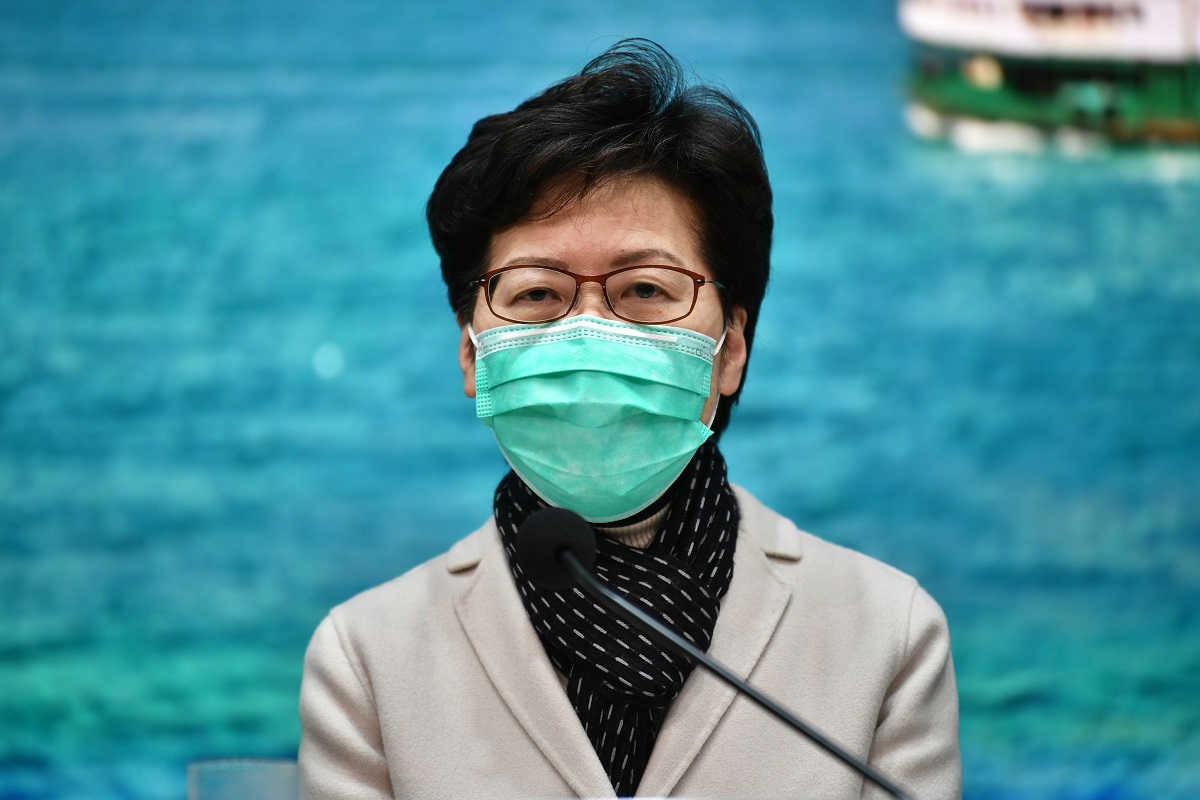India and China
The meeting between External Affairs Minister S. Jaishankar and Chinese Foreign Minister Wang Yi at the G-20 foreign ministers’
The research indicates that, as of March 31, it appeared that city’s authorities had averted a major outbreak of coronavirus after making decisions “far less drastic” than most countries.

Hong Kong's Chief Executive Carrie Lam takes part in a press conference while wearing a facemask in Hong Kong (Photo: AFP)
Hong Kong managed the first wave of coronavirus infections without resorting to a complete lockdown, opting for an increase in testing, contact tracing and changes in the behaviour of the population, according to a study.
The study published on Friday by The Lancet Public Health maintains that these measures create less disruption in society and the economy than a strict lockdown, but they are effective in controlling the spread of COVID-19, according to the media report.
Advertisement
Research leader Professor Benjamin Cowling from the University of Hong Kong said, “By quickly implementing public health measures, Hong Kong has demonstrated that COVID-19 transmission can be effectively contained without resorting to the highly disruptive complete lockdown adopted by China, the USA, and Western European countries,”
Advertisement
The research indicates that, as of March 31, it appeared that city’s authorities had averted a major outbreak of coronavirus after making decisions “far less drastic” than most countries.
Earlier in the month, the city’s Chief Executive Carrie Lam dismissed calls from across the political spectrum to take a voluntary pay freeze, after it was revealed her annual salary had increased to HK$5.21 million ($672,000).
Earlier, Lam reiterated zero tolerance against breaching mandatory quarantine orders on inbound travellers and urged members of the public for self-discipline and cooperation in the fight against the coronavirus pandemic.
Lam had also announced that full resumption of school classes on April 20 was “quite impossible” and the government would continue to not organise any large-scale events.
As of March 31, Hong Kong had 715 confirmed cases of COVID-19, including 94 asymptomatic infections and four deaths, in a population of 7.5 million. It now has 1,022 cases and four deaths.
China’s imported cases of coronavirus increased to 1,566 with 27 fresh ones, while its revised death toll stood at 4,632 with 50 per cent jump in fatality figures from the epicentre Wuhan, according to the health officials on Saturday.
As per the new figures, the overall confirmed cases on the mainland reached 82,719 by Friday, including 4,632 deaths.
As many as 1,058 patients are still being treated and 77,029 have been discharged from hospitals.
On Friday, Wuhan’s officials announced that as of April 16, the total number of confirmed coronavirus cases was raised by 325 to 50,333 and the number of fatalities up by 1,290 to 3,869.
In a survey in March, 85% of respondents reported avoiding crowded places, and 99% reported wearing face masks when leaving home, which the authors say is an indication of their concern.
During the Sars outbreak in 2003 that affected Hong King severely, causing 299 deaths, 79% of the population wore masks, but only 10% in the swine flu pandemic of 2009.
On Friday, the United States has passed 700,000 confirmed coronavirus cases, according to a tally maintained by Johns Hopkins University.
Meanwhile, there are 2,250,790 coronavirus cases across the world at present, and 154,266 fatalities.
Advertisement